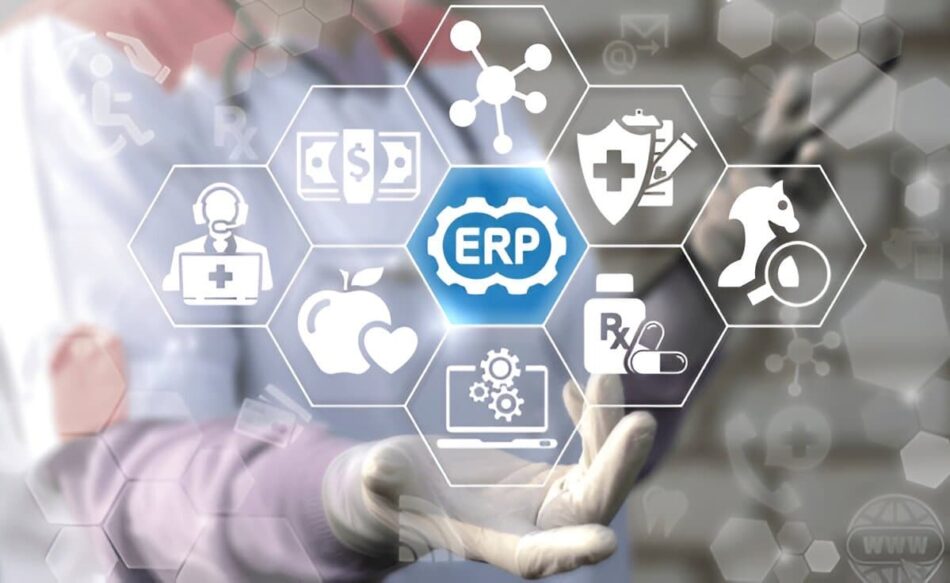Our healthcare ERP solution unifies medical records, supplemental tools and supply chain management onto one platform to streamline business processes while providing real-time insights.
Additionally, an ERP system can aid inventory management by keeping tabs on expiration dates of pharmaceutical products and instruments – this helps avoid taking expired medications that compromise patient safety.
Hospital Management System
Hospitals require a robust and integrated system for managing daily operations and workflows. A hospital management system enables medical professionals to streamline processes, increase efficiency, and deliver effective patient care.
The Hospital Management ERP automates manual tasks, reduces paperwork, boosts administrative performance and ensures accurate records in hospitals, clinics and healthcare facilities. Furthermore, this solution allows you to optimize your hospital business model and achieve sustainable success.
Hospital management systems help enhance internal communication by automating key processes to expedite patient document delivery faster, leading to greater customer satisfaction and lower turnover in healthcare organizations.
NetSuite’s integrated financial management and reporting tools help healthcare organizations reduce errors and increase accuracy when forecasting and budgeting, leading to greater financial health. In addition, this software offers tools for tracking clinical and operational risks as well as best practices that promote cost-effectiveness and patient centricity in your practice.
Patient Management ERP
As opposed to generic ERP systems that lack healthcare-specific integrations, our scalable cloud ERP system connects medical records to supplemental tools and supply chain management in real time for real insights for every decision maker. Seamless interoperability eliminates data silos while improving workflow. Advanced analytics provide greater insight into operational performance, patient outcomes, financial forecasting – helping staff make better decisions that improve patient care.
Centralized patient records enable quicker, more accurate diagnosis and treatment. Hospital management ERP software also facilitates automation, inventory optimization, cost effectiveness analysis and supply chain optimization to foster interdepartmental collaboration as well as provide healthcare professionals the means to monitor key performance indicators to identify improvement opportunities and promote continuous quality improvement in healthcare settings.
Hospital management ERPs come equipped with tools that help manage compliance and security issues by tracking regulatory requirements and protecting sensitive patient information. It ensures compliance with HIPAA standards while facilitating audit management processes.
Hospital Management Software
Hospital Management Software assists healthcare facilities to operate more smoothly and efficiently by utilizing various modules that manage administrative tasks, improve communication and coordination between departments, and enhance patient experiences.
The hospital management system also assists in keeping track and managing medical records, such as those related to patients, doctors, nurses, and other healthcare professionals. It facilitates test results and data transmission among multiple hospitals.
Staff can use the HMS to quickly and accurately identify the doctor best suited for each case, making it especially helpful when treating complex illnesses or diseases requiring multiple approaches.
HMS can also manage billing and financial transactions, which minimizes errors and provides better financial control. Clinic administrators can use HMS to maintain staff records and payroll; additionally, promotions or transfers may also be monitored using it.
Hospital Billing and Finance Management System
The Hospital Billing and Finance Management System is an advanced financial tracking tool that keeps tabs on transactional data, generates invoices and receipts, and produces comprehensive financial reports. It ensures patients and insurance companies are billed accurately and promptly, while helping establish financial accountability by making communication between clientele about financial obligations easier while helping manage costs more effectively.
Modules designed to track staff leave requests, shift schedules, and attendance automate processes and reduce paperwork – this results in enhanced accountability, operational efficiency, transparency and compliance with healthcare laws across every department.
PatientERP Electronic Medical Records Software digitally stores laboratory information, prescriptions, medications, patient healthcare histories and diagnoses in one central database for improved database accuracy, expedited information access in hospitals and improved patient care. In addition, PatientERP facilitates communication by informing both doctors and patients of scheduled appointments or changes and thus decreasing no-show rates and streamlining clinic operations while supporting interoperability with national health information exchanges.
 WhatsApp Us Now
WhatsApp Us Now





